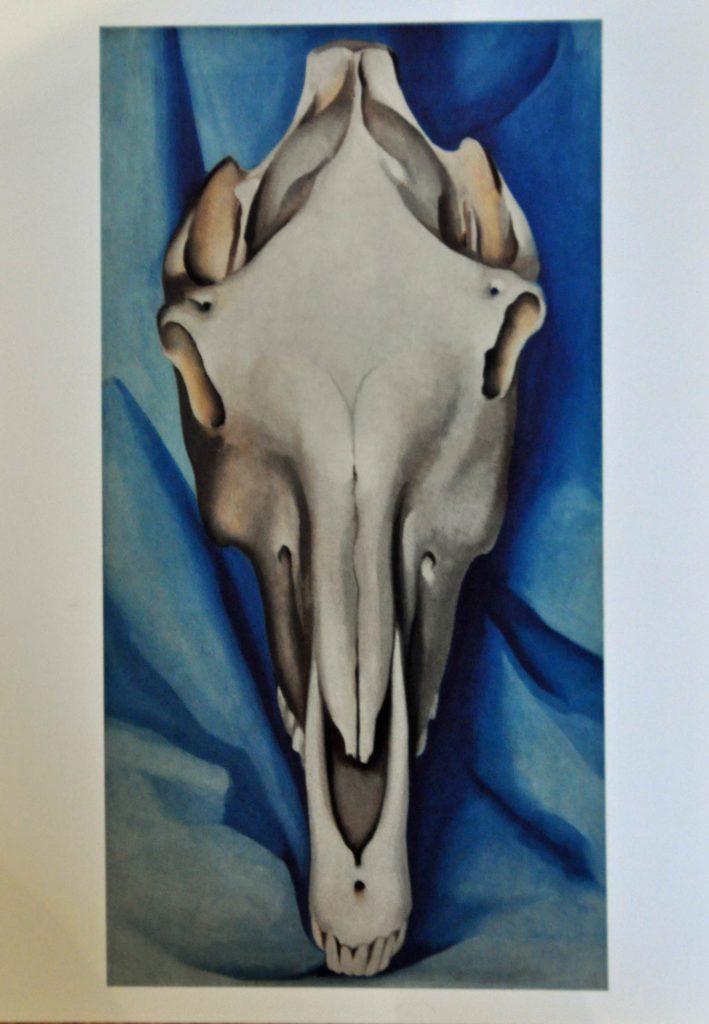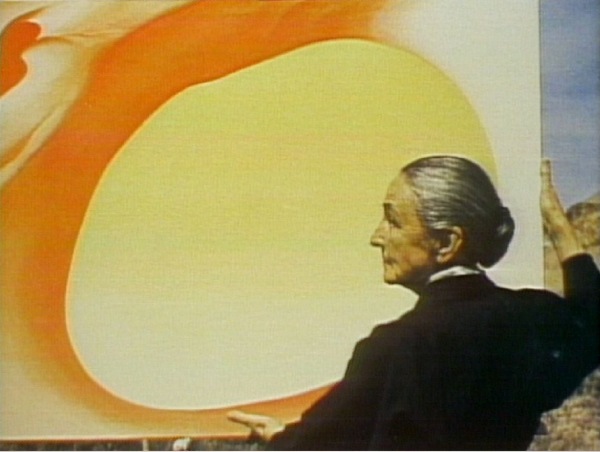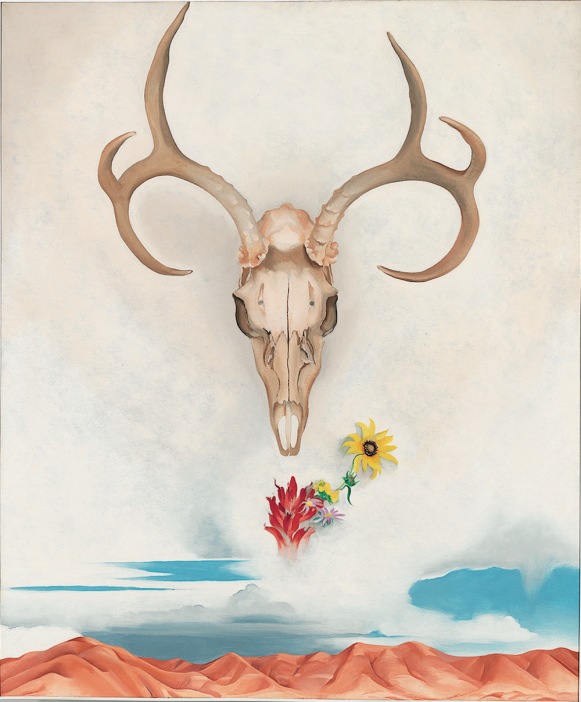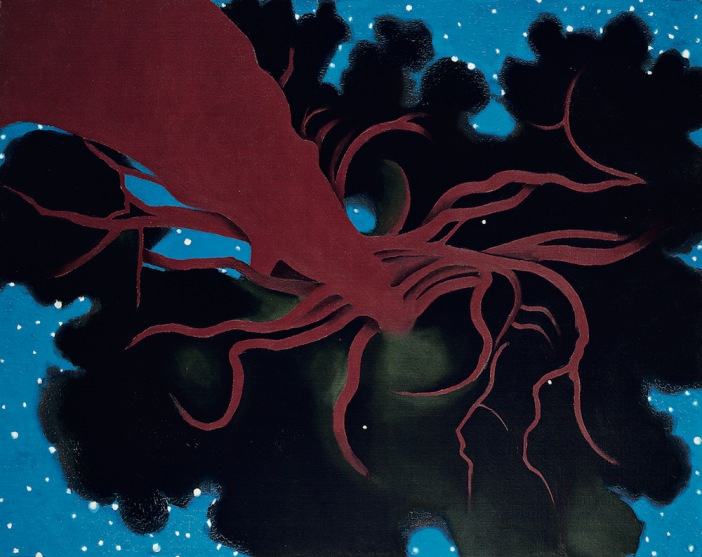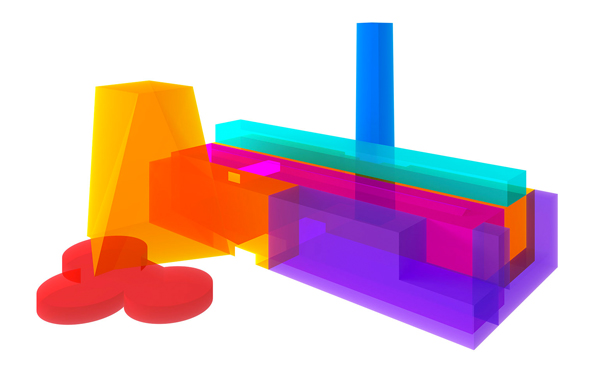Georgia O’Keefe (1887-1986) is a hugely recognisable American artist, currently on exhibition at the Tate Modern, London, It’s a large exhibition with thirteen rooms essentially ordered chronologically and showing her mover from early abstract work, through figurative and back to more abstract.
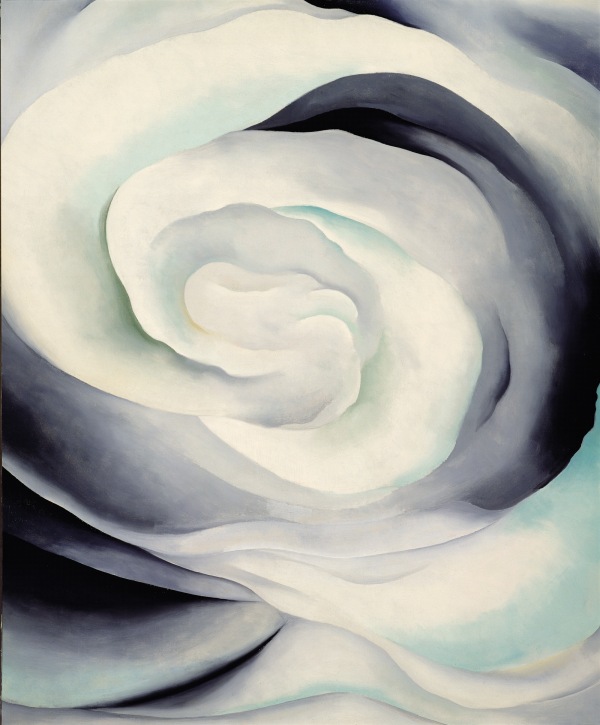
It also includes work by Stieglitz and Ansel Adams that add a great deal to understanding her work especially her landscapes.
It is hard to escape the many critics who identify her works as sexual though she herself always denied “When people read erotic symbols into my painting, they’re really talking about their own affairs”.
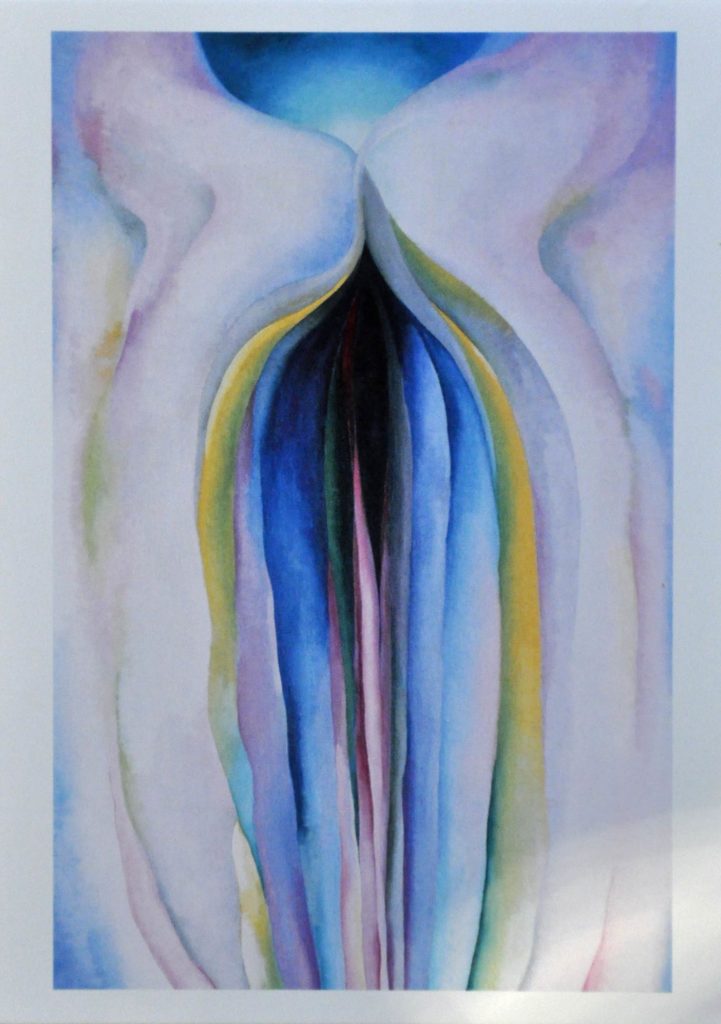
Perhaps it wasn’t useful that Stieglitz, later her husband was a major source for these attitudes.

With Stieglitz she was part of the Progressive Era, a group of men and women coming of age in the late 19th and 20th centuries embodying a fundamentally optimistic cultural nationalism in America.
They moved to New York and she painted the city working from both street level and high up from the 30th floor of a skyscraper they lived in. She stopped painting the city not long after the Wall street crash of 1929, the year she made her first prolonged visit to New Mexico.
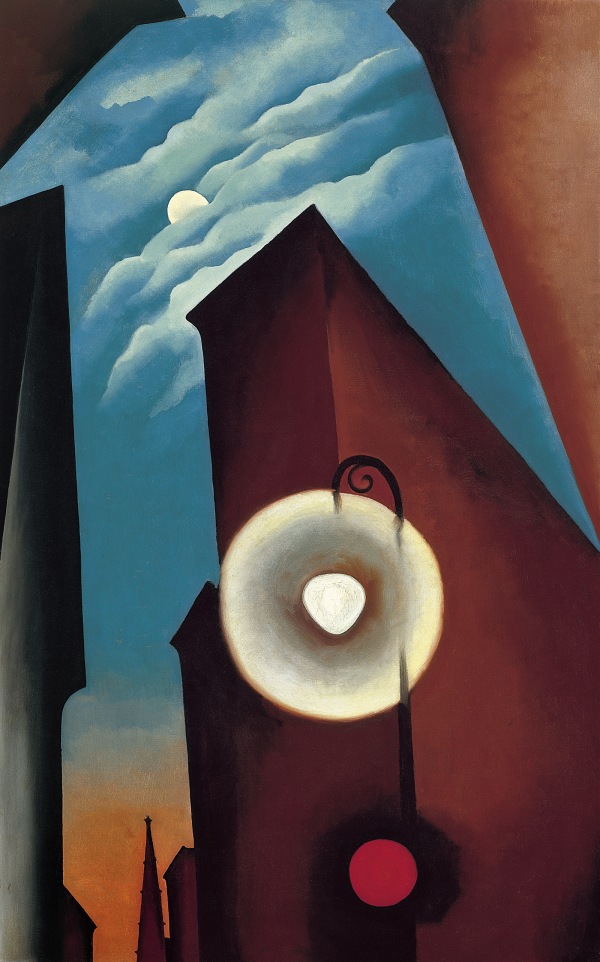
But O’Keefe is most famous for her flower paintings which were made from the 1920s through to the 1950s. In fact, these make up only a fraction of her overall works. The exhibition at the Tate Modern is an opportunity to explore O’Keeffe’s various sources of inspiration and wide range of subject matter.
I hate flowers – I paint them because they’re cheaper than models and they don’t move.
Georgia O’Keeffe in Laurie Lisle, Portrait of an Artist: A Biography of Georgia O’Keeffe, 1981
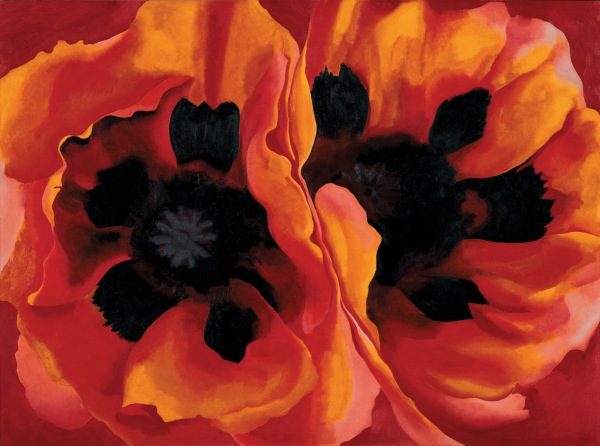
They are a strange blend of photographic realism and abstract.
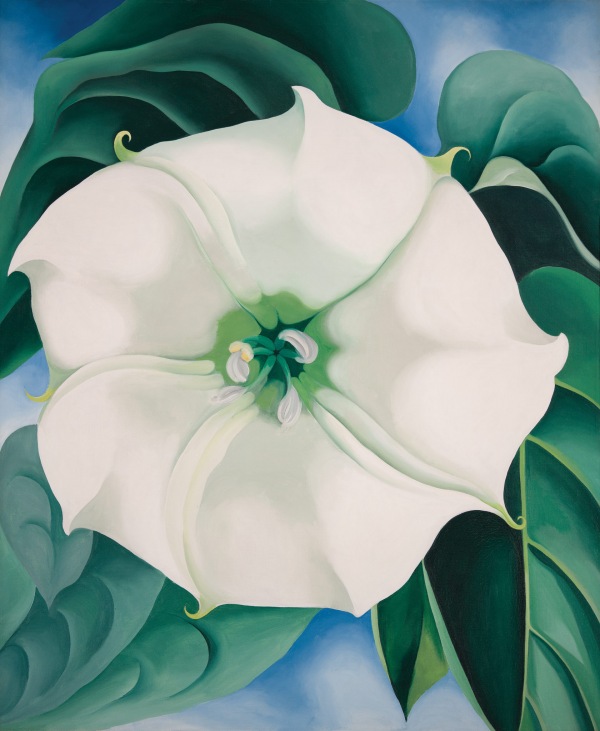
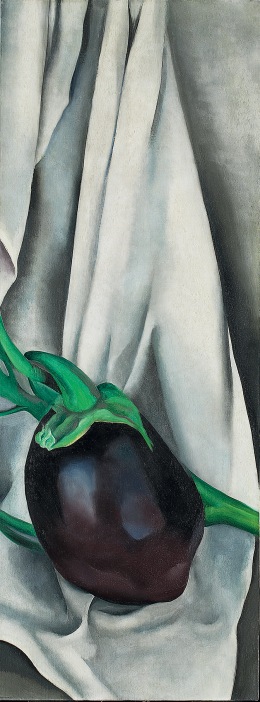
In New Mexico she found herself at home, painting the landscape and also the things she found within it.
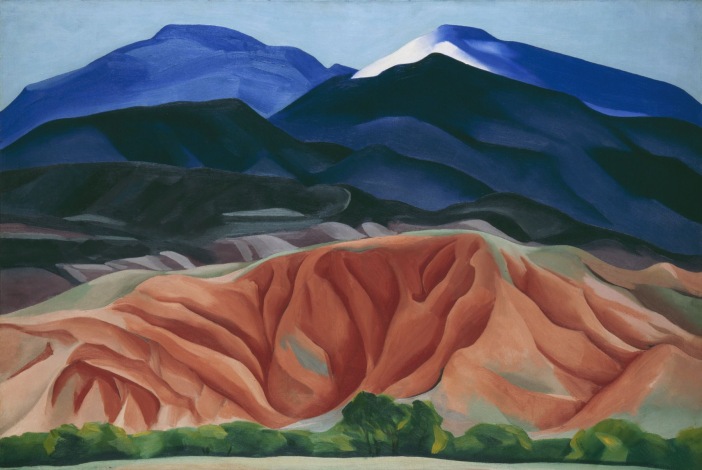
Instead of flowers, lacking in the desert, she painted bones.

